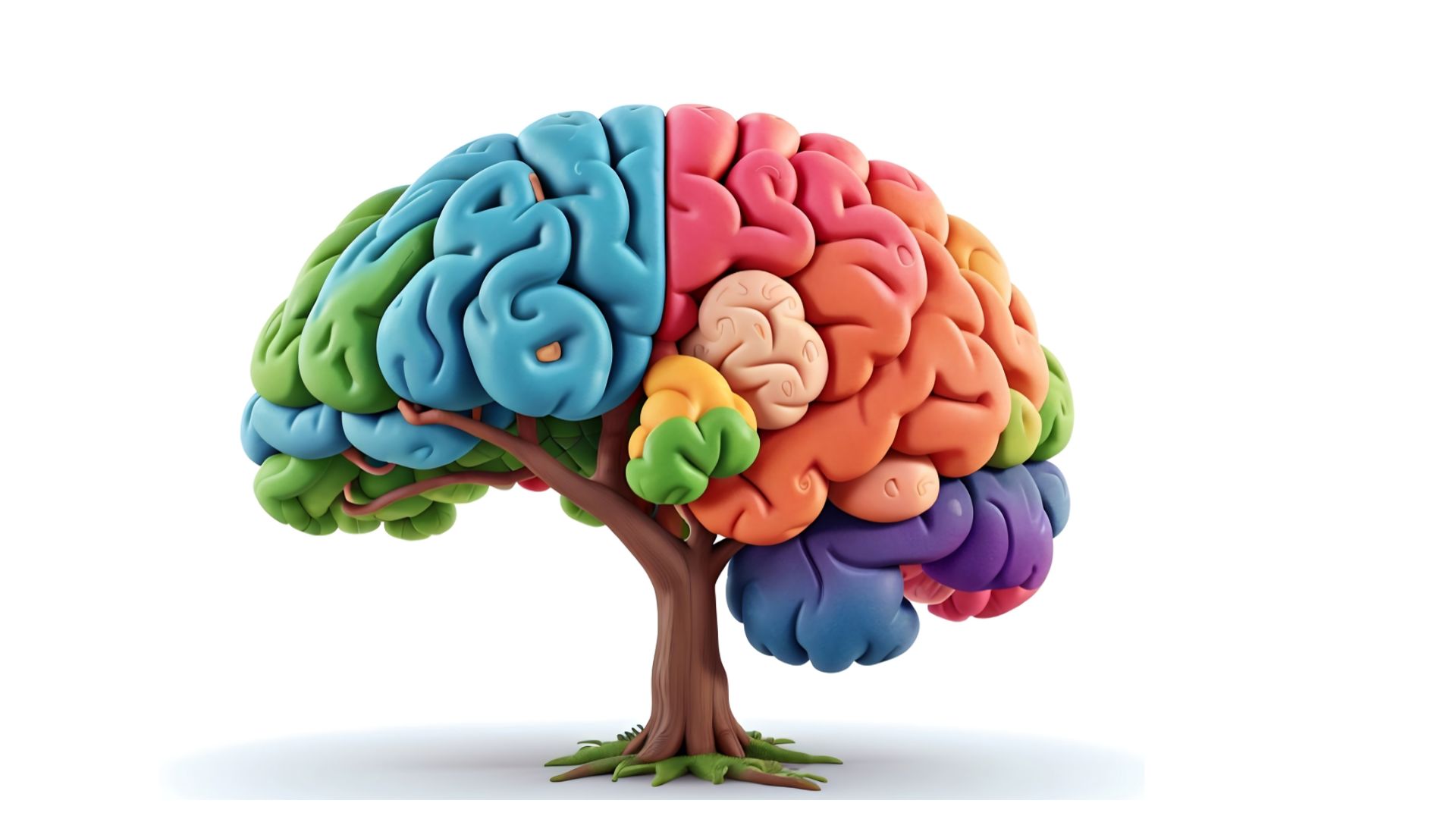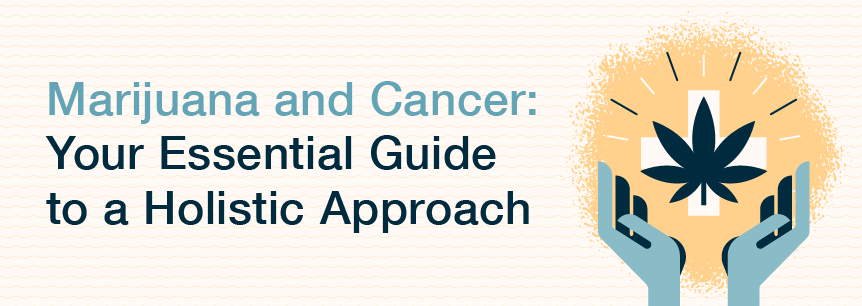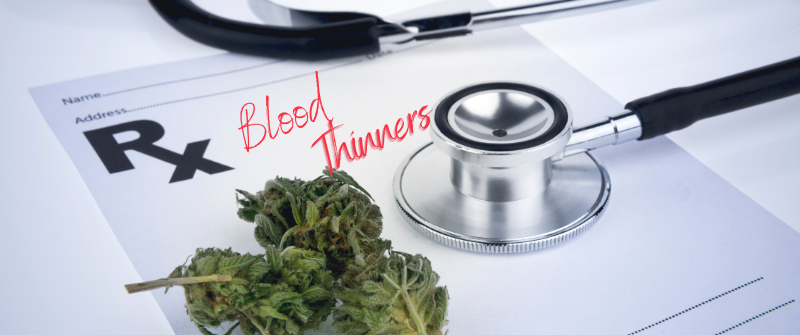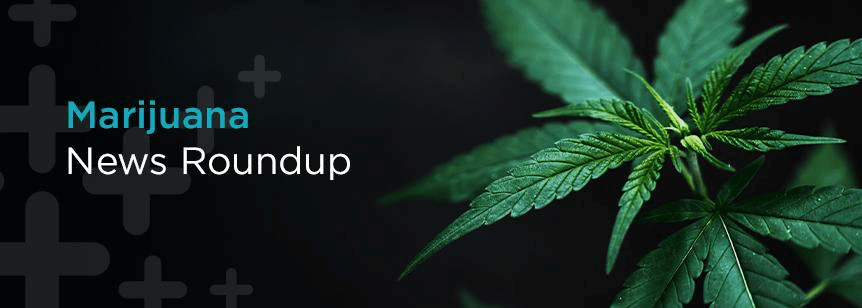The conversation around cannabis has shifted dramatically, but the science behind its long-term effects on the brain remains as important as ever. Recent studies show that some intoxicating compounds of the cannabis plant may pose some risks to younger consumers at chronically high doses, rather than to older adults or at low doses in animals.
Meanwhile, others, like cannabidiol (CBD), cannabigerol (CBG), and raw cannabinoid acids (e.g., THCA, CBDA, and CBGA), show many promising therapeutic effects for mental health and brain function. They span several neuroprotective qualities that may help alleviate a wide range of health conditions.
However, for every potential benefit, there are long-term cognitive effects that every user should be aware of. Also, each time the cannabis plant is consumed, its effect on the brain largely depends on your age, the dose, and the key active ingredients present in the plant.
The two main compounds in the cannabis plant—tetrahydrocannabidiol (THC) and cannabidiol (CBD) interact with the endocannabinoid system (ECS), which regulates many neurological functions, including mood, memory, and sleep. The key distinction lies in the different interactions of both compounds with the ECS.
Let’s take a look at these compounds found in the cannabis plant, which may affect long-term cognition.
THE COMPOUNDS: THC VS. CBD
Tetrahydrocannabidiol (THC), the main psychoactive component of the cannabis plant, binds to the CB1 receptors in the brain and CB2 receptors throughout the body. By ‘psychoactive’, this means that THC is the cannabis compound that causes the ‘high’.
When THC binds to the CB1 receptors in the brain, it mimics the mechanism of action of the body’s endocannabinoids — which are the actual compounds found naturally in the ECS. This action allows THC to bind to and activate the CB1 receptors but with higher potency, disrupting the normal neural communication (endocannabinoid to CB1 receptors), hence leading to a dopamine release — ‘the high’
The brain adapts to chronic and heavy THC use, compensating better in adulthood, and it tries to re-establish a sense of balance by reducing the availability of CB1 receptors. This process is known as down-regulation, which can make the brain less sensitive to THC over time and may disrupt the normal function of the ECS.
Now, this disruption is what may cause some defects in memory, attention, and decision-making, especially in adolescents, because the brain is still developing during that age.
CBD, on the other hand, is the main non-psychoactive component of the cannabis plant. Unlike THC, it does not bind directly to the CB1 receptors; instead, it acts as a system regulator. It influences the ECS in an indirect way, boosting endocannabinoids and affecting functions related to mood, sleep, and pain. CBD can also directly target receptors like serotonin, TRPV1, GPR55, and many more.
Due to this different mechanism of action, CBD is not associated with cognitive impairments. Research shows that it may have therapeutic qualities for mental health, anti-anxiety, and anti-inflammatory properties. It may also possess special neuroprotective qualities, which may help to protect the brain and even act as a counterweight for some of the negative effects of THC.
THC AND CBD EFFECTS ON LONG-TERM COGNITION
Memory
Long-term, heavy THC use, especially when started in adolescence, is associated with a decline in both working and verbal memory. This can manifest as a reduced ability to learn or recall information. Thankfully, the same study also notes that these cognitive deficits are temporary, generally disappearing within 72 hours of abstinence.
The hippocampus, which is a brain structure responsible for new memories, has an exceptionally high concentration of CB1 receptors. With chronic and heavy THC use, the brain tries to adapt to this constant overstimulation by reducing the concentration of CB1 receptors in the hippocampus. This results in a reduction in the brain’s overall sensitivity to cannabinoids.
This can lead to persistent structural changes in adolescents, including in critical memory and judgment zones like the frontal lobe and hippocampus, potentially impairing the brain’s ability to form and retrieve memories even after the acute effects of the plant have worn off.
However, in middle-aged to older adults, cannabis use may do the opposite, associated with positive long-term brain changes.
These brain changes are of unclear significance at this time, as the cognitive deficits seem to be restored within 72 hours of abstinence. But initiating chronic cannabis use at a younger age is still associated with several other negative long-term risks, including early school dropout.
READ: Replacing Sleep Medicine With Medical Marijuana
Motor Function
THC’s long-term effects on motor function are a direct result of its influence on the brain regions that control movement and coordination — the basal ganglia and the cerebellum. Both have a high density of CB1 receptors.
The basal ganglia are responsible for initiating and smoothing out voluntary movements, while the cerebellum fine-tunes coordination, posture, and balance. By overactivating the CB1 receptors in these areas, THC disrupts the communication pathways that govern motor control. This throws the brain’s natural ability to regulate movement off balance. While acute THC use can cause noticeable impairment in coordination and reaction time, heavy, long-term use may cause a reduction in a person’s ability to perform complex, coordinated tasks.
However, CBD may have therapeutic effects on motor function. Its anti-inflammatory properties can benefit brain regions involved in motor control, such as the basal ganglia, and may help protect neurons in these critical motor centers from damage. However, effects on motor symptoms are still inconclusive.
Decision-Making
THC primarily affects decision-making over the long term by impacting the function of the prefrontal cortex (PFC), a brain region that regulates activities that include planning, impulse control, risk assessment, and learning from consequences—all of which are essential for sound decision-making.
Chronic THC exposure, particularly during adolescence when the PFC is still developing, can lead to persistent impairments. Studies show that users tend to focus on immediate rewards while ignoring long-term negative consequences, leading to disadvantageous decisions over time. In essence, chronic THC use can blunt the brain’s ability to process and learn from negative or social feedback. Long-term cannabis use in adolescence also reduces impulse control.
However, CBD’s effects on decision-making work to create a more stable mental state that supports rational thought. CBD’s positive influence on learning and mood is largely due to its antioxidant properties and interaction with the 5-HT1A serotonin receptor, an important receptor in regulating mood, anxiety, and stress. By acting as a partial agonist at this receptor, plus ECS enzymes and ion channels, CBD can help reduce feelings of anxiety and depression.
CBD’s ability to fight inflammation is shown to restore memory impairments and safeguard brain cells. A reduction in anxious and inflammatory factors allows for clearer thinking and a more rational approach to complex decisions. Although little is known about CBD and long-term brain structure, positive cerebral blood flow changes to the hippocampus may also help with better memory performance.
Emotions or Behavioral Patterns
THC’s long-term effects on emotions and behavior are linked to its influence on the brain’s emotional and reward systems, like the amygdala, a key part of the limbic system, which is the brain’s emotional control center. It is responsible for processing fear, anxiety, and stress, and it has a high density of CB1 receptors.
While acute, low-dose THC use may temporarily reduce amygdala activity and feelings of anxiety, chronic THC use can lead to long-term dysfunction of this region. This can make it harder for individuals to manage fear, stress, and anxiety on their own, potentially contributing to the development or worsening of anxiety disorders over time.
THC also causes a significant surge of dopamine in the brain’s reward system. This is what produces the feeling of euphoria and pleasure. However, chronic exposure can lead to a blunted reward system, making non-drug-related activities—such as spending time with loved ones or engaging in hobbies—feel less rewarding. This can contribute to symptoms that directly impact behavioral patterns.
CBD generally produces beneficial effects on emotions and behavior, often counteracting the effects of THC. This makes it a potential therapeutic agent for managing emotional dysregulation and, by extension, problematic behavioral patterns.
PREVENTIVE STRATEGIES
Delay Use Until Adulthood
Delaying cannabis use until the brain is fully developed, which is around age 25, is the most effective preventative measure. This is because the adolescent brain is highly vulnerable to THC’s disruptive effects, and starting use early is consistently linked to a higher risk of long-term cognitive, social, educational, and mental health issues.
Prioritize High-CBD, Low-THC Products
The ratio of CBD to THC is a critical factor. To reduce the risk of long-term cognitive and emotional side effects, choose products with a balanced or higher concentration of CBD compared to THC. As discussed, CBD can act as a buffer, reducing the negative effects of THC on memory, mood, and other related health conditions.
Limit Frequency and Potency
Using high-potency THC products daily or nearly every day strongly increases the risk of developing a cannabis use disorder and experiencing long-term cognitive impairment. Limiting use to occasional or weekly events significantly reduces these risks.
Consider Personal Risk Factors
Individuals with a personal or family history of mental health conditions, such as psychosis, anxiety, or addiction, should approach cannabis use with extreme caution or abstain completely. These individuals are at a significantly higher risk of experiencing adverse effects. Pregnant individuals should abstain completely.
Frequently Asked Questions
Does cannabis affect your brain development?
Yes, cannabis affects brain development, and the impact is a significant concern for adolescents and young adults. The brain continues to develop until roughly age 25, and this period is particularly vulnerable to the effects of substances like cannabis. However, purified pharmaceutical CBD called Epidiolex® is FDA-approved for patients 1 and older.
Can weed kill brain cells?
No, weed does not kill brain cells. But that does not mean that it is harmless to the brain. While it may not cause widespread brain cell death, it can still cause significant and lasting changes, especially with chronic use and in developing brains.
Think of it less as a poison that kills cells and more as a powerful tool that can affect the brain in an undesirable way. Recent preclinical studies suggest that cannabinoids can actually stimulate the growth of new brain cells and replace damaged nerves. This may include CBD, low-dose THC, and cannabinoid acids, which may also help rescue memory deficits.
How does weed affect your emotions?
The way weed affects emotions depends on the specific compounds involved, the dosage, and the individual’s mental health history. Chronic and heavy use of THC can disrupt the brain’s emotional control center—the amygdala, and desensitize the dopamine reward system.
In contrast, CBD can serve as a counterweight to reduce some of THC’s negative emotional and behavioral side effects.
Does smoking weed affect your mental health?
The effect largely depends on the compound consumed or the ratio of THC to CBD concentration. It also depends on other factors like age and mental health history.
Low-dose THC may provide temporary relaxation, but chronic and heavy use poses a greater risk of developing depression and anxiety. Additionally, in genetically predisposed individuals, it could cause psychotic disorders like schizophrenia.
However, CBD improves endocannabinoid signalling, lowers anxiety, and therefore reduces these negative mental health effects.
How does indica affect the brain?
Indica strains are largely concentrated with relaxing terpenes like myrcene and linalool, which penetrate the brain and work together to produce a calming effect on the brain and pain relief elsewhere. Myrcene may enhance the effects of THC to give a deeper sense of relaxation. While linalool affects the brain by calming neural activity and promoting emotional balance.






